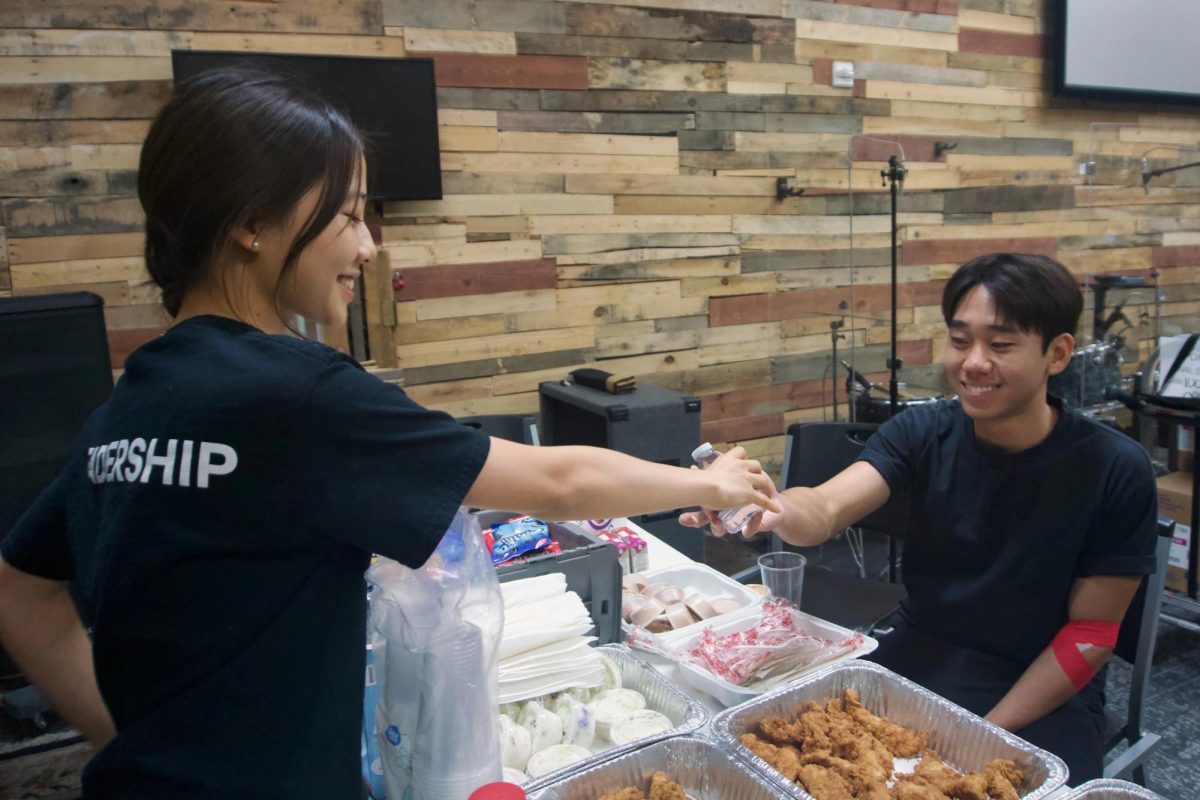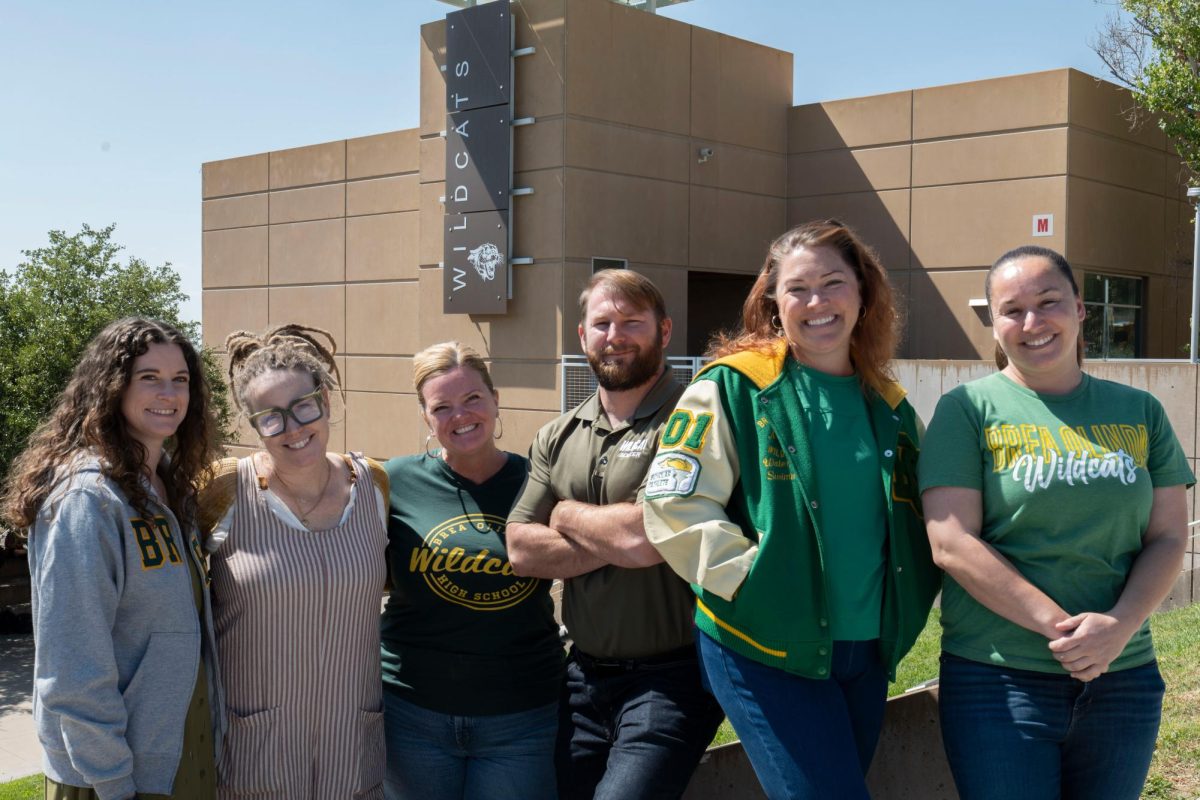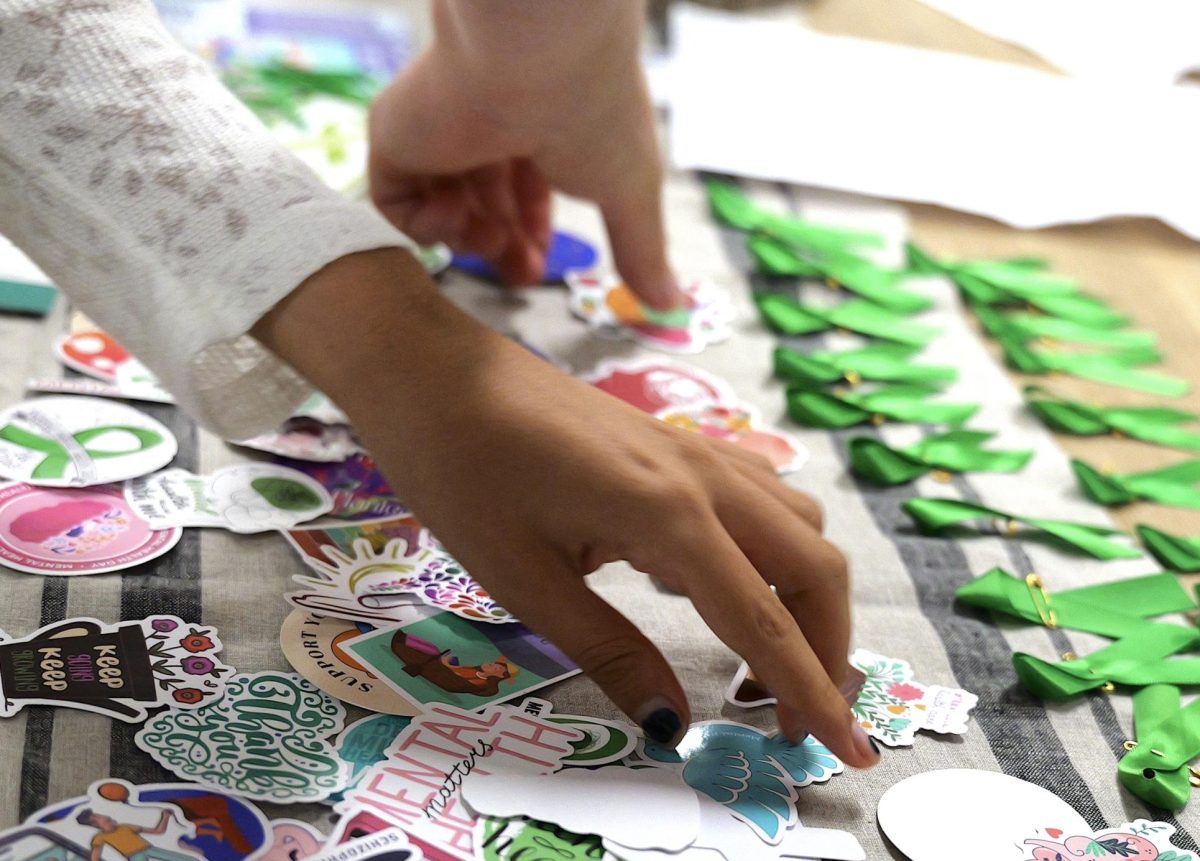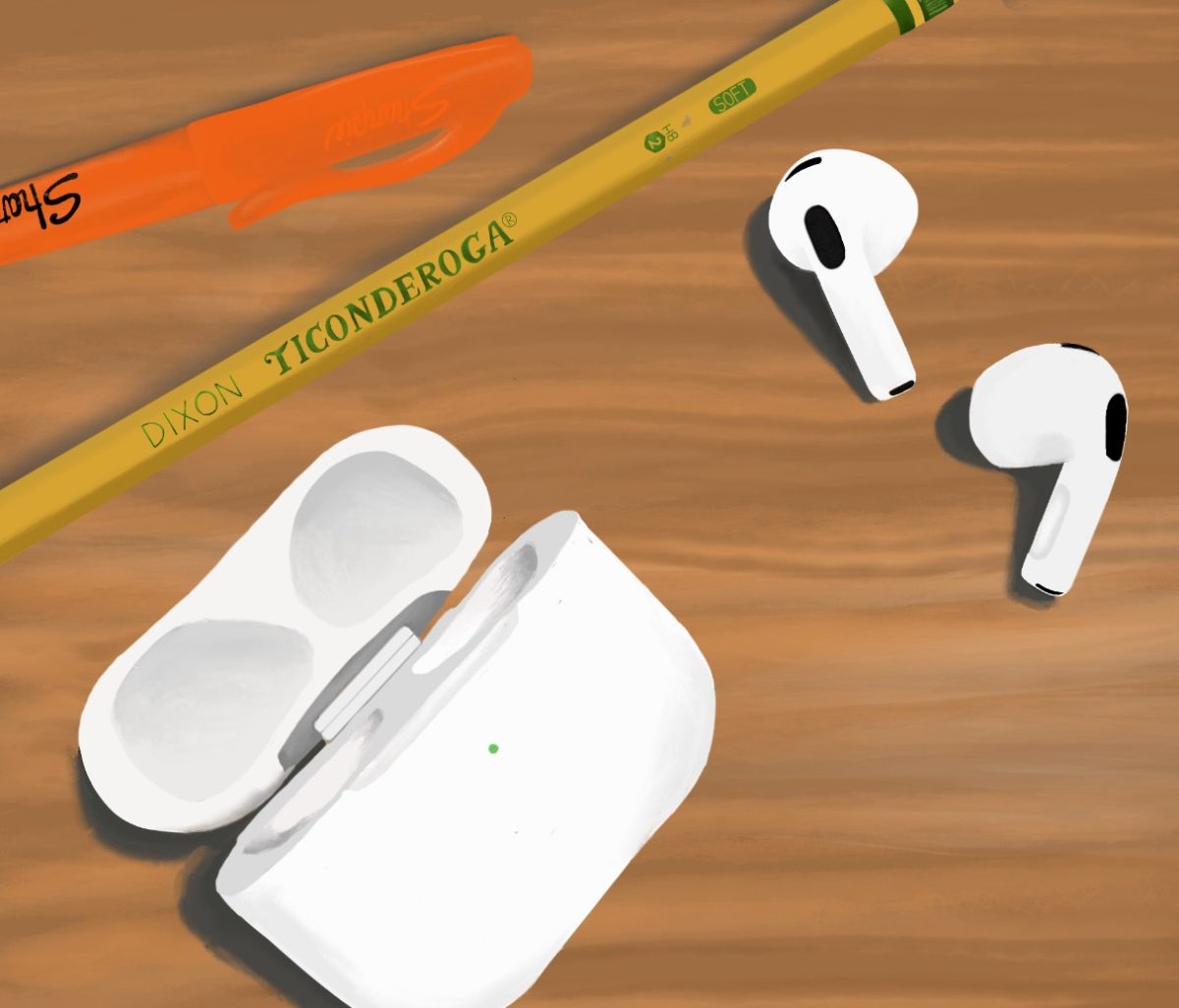With summer vacation mere weeks away, high school and college students across Orange County are currently looking for jobs.
The perks of securing summer work are many: having a job instills independence; it prepares students for life after high school; and it provides valuable work experience.
But the most exciting perk for most student-workers is having money in the bank. (No more having to ask our parents for 20 dollars to spend at the Brea Mall.)
Having a job, whether part-time weekend work or full-time 40-hours a week, enables financial liberation. But to secure that job, there’s a process that all summer job applicants will ensure. The application and interview process assures employers that you are the right candidate for their business, and while this stage can seem very intimidating, there are many things teen job applicants can do to set themselves up for success.
Wildcat staff writer, junior, and local business employee, Karla Yoell, has been through the process. She shares her tips for landing that perfect summer job, and interviews the manager of a local business (who asked to remain anonymous) who has experience interviewing students.
The Application
A job application is a form filled out — usually online — by the person interested in the job. Applications require the applicant to share personal information, like education and prior work experience, and indicate the position they are applying for. While the application stage may seem simple as filling out a form, there are a few things to keep in mind during this first stage to help the applicant stand out and score an interview.
TIP #1: Apply to places of interest. While applying for a job, some applicants think it’s best to apply to as many places as possible to ensure at least one call back (the casting-a-wide-net approach), but it’s important to work somewhere you’re actually fond of.
The Manager Says: “Employers want people who want to be there. It’s important to enjoy your job and like the place you work at. So apply to your wants.”
TIP #2: Be independent. While entering the workforce it’s important to be independent. While it might be more convenient for a parent, friend, or sibling to drop off an application or inquire about a position, it isn’t a good look as it demonstrates lack of self-sufficiency.
The Manager Says: “Your mother isn’t going to be working in your place, so you have to show up and ask questions for yourself.”
TIP #3: Dress neatly at all stages of applying and interviewing. If dropping off an application in person, make sure to look professional regardless of how casual handing in an application to an employer may seem. Inquiring about a job and dropping off an application are two of the very first impressions managers, and potential co-workers, have of the applicant.
The Manager Says: “If someone comes in to drop off an application and they are dressed in a sloppy and unprofessional manner, it gives an immediate bad impression, so keep how you present yourself in mind.”
This applies to the interview as well. The way the applicant looks and presents themselves is very important and can show how much the applicant cares (or doesn’t care) about the job they’re applying for.
TIP #4: Be ready to answer and make phone calls. Most establishments use phone calls to schedule interviews, for example. If the applicant can’t answer right away, the voicemail greeting should be professional and appropriate.
The Manager Says: “When you enter the work force, you have to make sure your voicemail is professional. No music and nothing inappropriate. In the case you can’t answer, the person calling you will have to hear this [message], so make sure it’s appropriate.”
In the case of submitting an application and not hearing back after awhile, calling back personally and inquiring about the application’s status is a great, proactive step.
The Manager Says: “Getting calls inquiring about application statuses shows us that the applicant cares and genuinely wants the job. So don’t be afraid to [call].”
The Interview
Some applicants don’t get selected for interviews, which is totally fine as it’s a very normal part of the process. But if selected, you will need to prepare for, and participate in, the interview. The interview is an opportunity for the applicant to show that they are enthusiastic about the position, and for the employer to assess the applicant’s skills and motivation in person.
TIP #5: Research frequently asked questions (FAQ). In the days prior to the interview, research common questions asked during interviews to get an idea of what you might respond to. Write the questions down on a piece of paper or type into your Notes app and then do a mock interview with a friend or family member.
The Manager Says: “Some questions we ask can be a little tricky to answer on a whim. I recommend getting a solid idea on what your answers are going to be like so you can answer well.”
TIP #6: Be at least five minutes early to your scheduled interview time. Being on time is good, but being early is even better as tt shows that you are prepared and considerate of the employer’s time. Introduce yourself with a smile, your name, and a firm handshake. Show confidence.
The Manager Says: “Even before the interview [starts], project yourself in a positive way. It shows that you are ready to take on the interview.”
Answer questions thoroughly. After introducing yourself, the question portion begins. While answering, be detailed, answer fully, and don’t stray off topic. Speak clearly, project your voice, and most importantly, be genuine.
The Manager Says: “Make sure you don’t go off on tangents. Stick to the actual question and answer as best you can. Going off topic can turn off the employer since we want direct and well-thought out answers. Also, make sure you [project] energy and use an [appropriate] tone of voice. Talking in a bland and dismissive tone can make you seem unenthusiastic.”
TIP #7: Pay attention to your body language. While it’s totally natural to feel anxious, make sure you make eye contact, smile, and sit up straight. The energy and confidence you exude can make or break an interview. Remember, first impressions matter.
The Manager Says: “Bland and lackluster body language is very common when interviewing teenagers, which isn’t ideal because most companies are looking for strong and outgoing candidates. We are drawn to people that radiate confident energy. Strong eye contact and a smile can make a huge difference in how your answers are perceived.”
TIP #8: Be able to state with confidence why you want to work there and what you see yourself doing in five years. Having a solid and genuine reason why you want to work at the place you’re interviewing for shows the employer that you actually have a desire to work there.
The Manager Says: “There’s a reason you’re applying, so what can you bring to the work environment? Saying something like, ‘My parents want me to get a job,’ or, ‘I want money,’ aren’t good answers and make you look unenthusiastic. Put some thought into the question. Again, talk about what you want to bring to the workplace.”
The question “Where do you see yourself in five years?” is asked so the employer can assess goals and motivations. Your answer should show the employer that you are open to growth and learning new skills.
The Manager Says: “We want to hear what you have in store for yourself. It doesn’t have to be over the top, but candidates with solid goals for progressing and growing show us you are motivated and dedicated to the work you do. You should always try your best at every job you acquire even if it’s not your dream job because if you’re not motivated here, how would you be motivated anywhere?”
TIP #9: Have past experiences ready to use to your advantage. Even if you have no prior work experience, the employer still wants to hear what skills and strengths you have. You can show this through past leadership roles in school, sports, and other activities.
The Manager Says: “We want to know what you have been and are passionate about. It shows your work ethic and past experiences; for example, telling the employer about a sports team you captained, or a project you led. Past experiences are important and very telling. But it’s also important to refrain from bragging. It’s good to be proud of yourself, but don’t boast too much.”
TIP #10: Have at least one question to ask the interviewer at the end of the interview. When wrapping up the interview, employers commonly ask, “Do you have any questions for us?” It’s important to have one ready because it shows that you are interested in the job and it provides another opportunity to stand out.
The Manager Says: “When applicants have questions for me, it shows they are invested in learning more about the job and interested in how things work. Some questions for example are, ‘Why do you enjoy working here?’ or, ‘What does the ideal applicant for this position look like?’ We want to hear your questions, so please ask.”
TIP #11: Say “thank you.” When the interview concludes, thank the interviewer for the opportunity and shake their hand once more before departing. This shows that you have respect for them and have good manners.
TIP #12: If you haven’t heard from the employer in a week or two after the interview, call and ask about your status. Some establishments take time when it comes to hiring, so giving them a call shows that you are still interested, and take initiative.
The Manager Says: “Similar to calling to check the status of your application, calling to ask for any updates on whether or not you have been hired also shows us that you are interested in the position. So again, do not be afraid to ask.”
While applying to jobs and enduring interviews can be an anxiety-inducing process, if you follow these tips from a veteran of job searches, applications, and interviews, you will stand out from other applicants. Employers and managers don’t bring people in for interviews with the intent to reject them — they want to hire great candidates.
Good luck, Wildcats!












